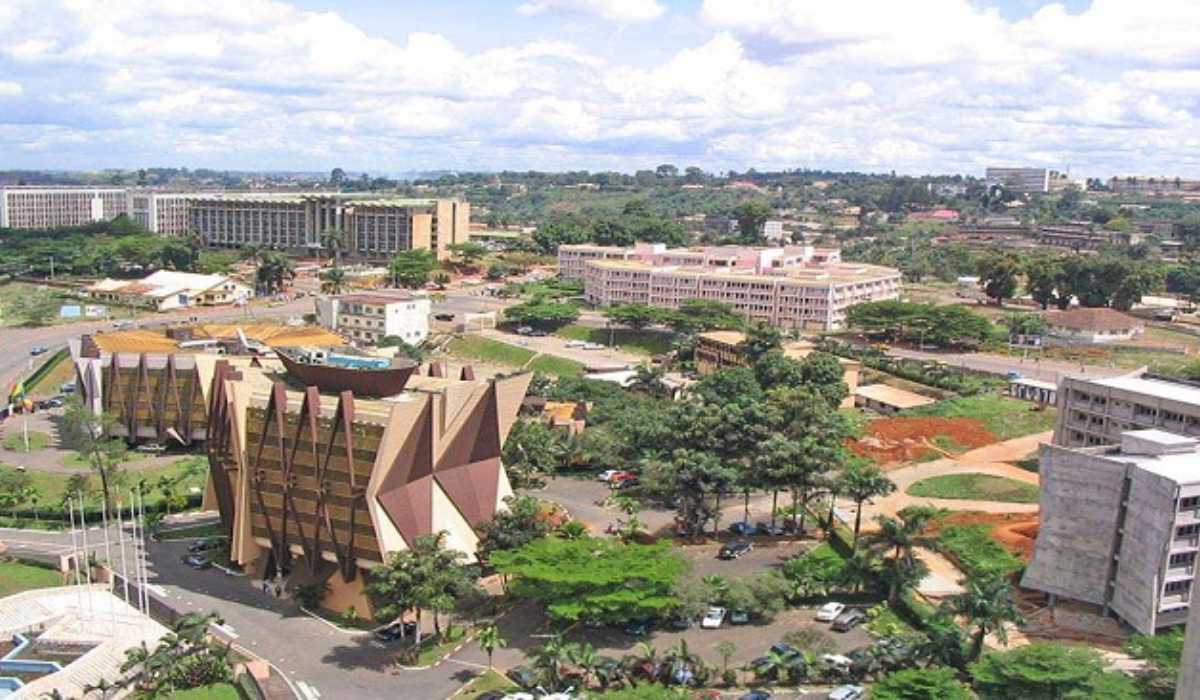In Central Africa, the term Ayéné carries profound cultural and linguistic significance. Whether referring to a village, a surname, or an expression in a local language, “Ayéné” embodies the diversity and richness of the region. This article explores the multiple meanings of the term “Ayéné” in Cameroon and Equatorial Guinea, shedding light on its cultural importance and regional context.
Ayéné as a Village Name
The village of Ayéné is located approximately 120 kilometers southeast of Sangmélina in Cameroon. Despite its small population—around 150 residents as of 2016—Ayéné holds a significant place in the lives of its inhabitants. This village, nestled in the heart of Central Africa, represents not just a geographic location but also a hub of community and tradition.
Location and Proximity to Sangmélina
Ayéné’s position in the southeastern part of Cameroon means it is situated in a predominantly rural area, far from the bustle of urban centers. The proximity to Sangmélina, a town known for its regional influence, links Ayéné to broader cultural and economic networks, yet the village remains a serene and relatively isolated spot.
Population and Community
With a population of only 150 people, Ayéné is a close-knit community. The inhabitants are likely involved in subsistence farming and local trade, with family connections running deep. This small population highlights the importance of community ties, which are often centered around traditional customs, rituals, and shared history.
Cultural and Historical Significance
Though not widely recognized outside the region, Ayéné’s history is crucial to understanding the socio-cultural fabric of the area. The village likely plays a role in the oral traditions that pass down knowledge, myths, and history from generation to generation, reflecting the diverse ways of life in rural Central Africa.
Ayéné as an Expression in Meta Language
In Cameroon, the term Ayéné also carries weight as an expression in the Meta language, one of the many languages spoken in the country. In this context, “Ayéné” translates to “so be it” or “let it be.”
The Meta Language in Cameroon
Meta, also known as Ewondo, is one of the most widely spoken Bantu languages in Cameroon. It serves as a key means of communication within the Beti-Pahuin ethnic group, though other groups in Cameroon also speak it. The language is an essential element of the region’s identity, reflecting local values, beliefs, and social practices.
Meaning of ‘Ayéné’ in Meta: “So Be It”
In Meta, Ayéné is often used to affirm something, similar to the English expression “so be it.” It’s a declaration of acceptance or approval, signaling agreement with a statement or situation. This usage reflects a certain philosophical outlook—an embrace of the natural flow of life, an affirmation of circumstances, and an understanding of the inevitability of events.
Cultural and Philosophical Interpretation
The expression conveys a sense of peace and acceptance. In many African cultures, phrases like “so be it” are deeply tied to the idea of respecting fate, divine will, or community consensus. The phrase “Ayéné” is not merely about passive acceptance; it carries an understanding of harmony with the universe and the community.
Usage in Everyday Conversation
In everyday life, you might hear Ayéné used when someone agrees with a suggestion or when a situation is acknowledged without protest. For instance, if a decision is made in a community meeting, someone might say “Ayéné” to show that they are in agreement, signaling that they trust the decision or trust it to be the right game-plan.
Ayéné as a Surname
Beyond its geographical and linguistic associations, Ayéné is also a surname found in Cameroon, often carried by individuals from the region.
Demographics and Distribution
The surname “Ayéné” is relatively common in Cameroon, with around 7% of the population bearing this name. It serves as a marker of identity and lineage for many families, linking them to a rich cultural heritage. The surname may signify descent from particular ancestors, or it could carry historical or spiritual significance, as surnames often do in African cultures.
The Social and Cultural Importance of Surnames
In African societies, surnames are more than just labels; they often carry deep familial, historical, and social meanings. They can indicate a person’s lineage, their connection to specific traditions, or even their role within the broader community. The surname Ayéné likely holds similar weight, connecting individuals to the legacy of the village and the larger cultural narratives of the region.
Meaning and Significance in African Cultures
Surnames like Ayéné often hold profound spiritual or ancestral connections. In many African cultures, the passing down of a surname through generations serves to honor ancestors and maintain ties to one’s heritage. As such, the surname Ayéné may signify the perseverance of tradition, family ties, and identity across generations.
Ayéné as a Town in Equatorial Guinea
While the name Ayéné is primarily associated with Cameroon, it is also found across the border in Equatorial Guinea. In this context, Ayéné refers to a small town located in the Añisok district of the Wele-Nzas province.
Geographical Location within the Wele-Nzas Province
Ayéné, as a town, is situated in the central part of Equatorial Guinea. The country itself is known for its linguistic diversity and historical ties to both African and Spanish influences. Ayéné is one of many towns that reflect the blend of indigenous traditions and colonial history in the region.
Historical Background and Population
The town had an estimated population of 3,482 people as of 2005. Although small in comparison to urban centers in the region, Ayéné plays a key role in the local economy and community. Like many Central African towns, it’s likely centered around agriculture, with families relying on farming for their livelihood.
Cultural Context of the Town
In addition to its economic role, Ayéné, like many towns in Equatorial Guinea, is also a center for cultural expression. The local population speaks multiple languages, with indigenous languages being a central part of the cultural fabric. The blending of African traditions with the legacies of Spanish colonization creates a unique cultural identity in Ayéné.
The Cultural and Linguistic Richness of ‘Ayéné’
The term Ayéné symbolizes more than just a village, surname, or phrase. It highlights the linguistic and cultural diversity that characterizes Central Africa. The multiple meanings of Ayéné are a testament to the complexity of the region’s identity.
Symbolism and Connection Between Different Meanings
Whether referring to a physical location, an affirmation, or a family name, Ayéné serves as a reminder of the interconnectedness of people, places, and traditions in the region. It reflects how language, culture, and history intertwine to shape identity.
Representation of Cultural Diversity
The presence of Ayéné across different regions—Cameroon, Equatorial Guinea, and even within various languages—demonstrates the rich cultural tapestry of Central Africa. It highlights the importance of understanding and respecting local languages and customs in appreciating the full significance.

